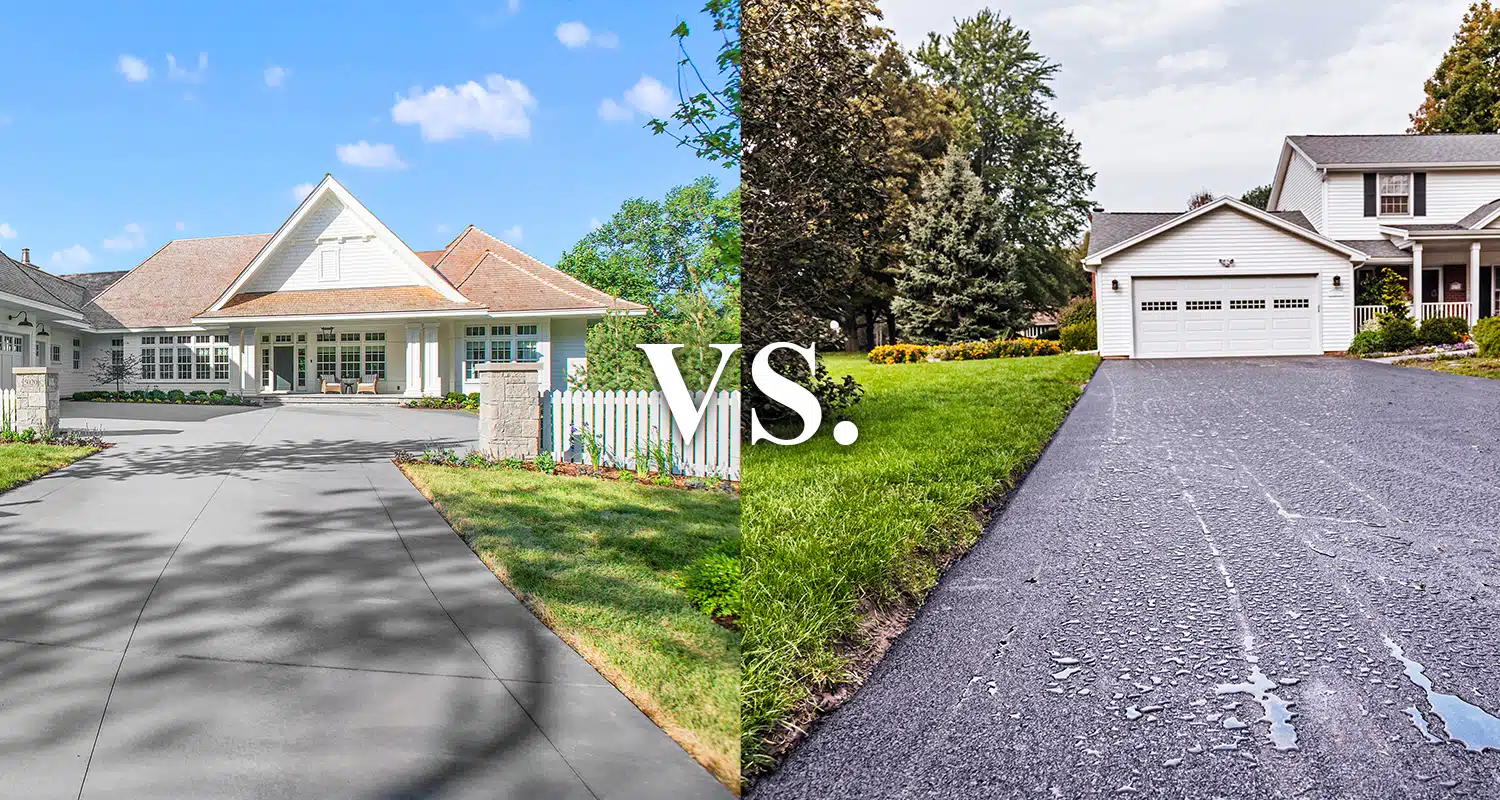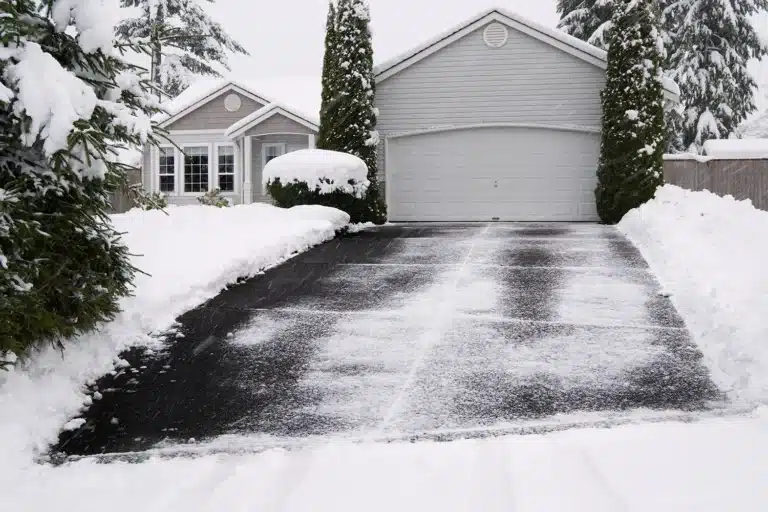When it comes to choosing between asphalt and concrete for your driveway or parking lot, the decision goes beyond surface appearance. Both materials have distinct advantages and disadvantages that can impact your project’s cost, durability, installation time, and long-term maintenance needs. Whether you’re a homeowner replacing a driveway or a property manager planning a large commercial lot, understanding the difference between these two popular paving options is essential.
Let’s break down the key differences between asphalt paving and concrete paving to help you make an informed choice.
Key Differences at a Glance
| Feature | Asphalt Paving | Concrete Paving |
|---|---|---|
| Cost | Lower upfront cost | Higher initial cost |
| Installation Time | Quick (1–2 days + curing) | Slower (up to a week curing) |
| Durability | Flexible and weather-resistant | Hard, rigid surface |
| Maintenance | Requires sealcoating every few years | Prone to cracks, harder to repair |
| Aesthetics | Traditional black finish | Variety of color and finish options |
| Winter Performance | Retains heat, melts snow faster | Can become slick and freeze faster |
| Best Use | Roads, driveways, commercial lots | Decorative patios, walkways, lighter-use areas |
Cost Comparison: Asphalt Is More Affordable Upfront
If budget is your top concern, asphalt is typically the more affordable paving solution. On average, asphalt installation ranges from $3 to $5 per square foot, while concrete often costs between $5 and $10 per square foot, depending on finishes and reinforcements.
Asphalt’s lower price point makes it ideal for larger projects like parking lots, roadways, or multi-family driveways, where keeping costs down is important. Concrete can become more expensive when decorative finishes, color additives, or custom scoring are added.
Installation Time: Asphalt Wins for Speed
Asphalt can usually be installed and ready for light traffic within 48–72 hours, while concrete requires up to 7 days to cure and gain strength. For commercial projects, this reduced downtime means fewer operational disruptions and faster returns to normal business.
Durability and Performance: It Depends on the Environment
- Asphalt is flexible and better suited for areas with heavy freeze-thaw cycles. Its ability to expand and contract helps prevent cracking during extreme weather.
- Concrete, while more rigid, can last longer in stable climates but is more likely to crack in colder regions.
In general, asphalt is better at handling heavy vehicle traffic due to its ability to flex under pressure, while concrete works well for areas that prioritize visual appeal over load tolerance.
Maintenance Requirements
Both materials require maintenance, but the type and frequency differ:
Asphalt Maintenance:
- Needs sealcoating every 2–4 years to protect against UV rays, moisture, and oil spills.
- Crack filling and patching are relatively easy and inexpensive.
Concrete Maintenance:
- Less frequent upkeep, but more costly to repair when cracks appear.
- Repairs are often visible and may require full slab replacement to match aesthetics.
Cold Weather Performance
Asphalt’s dark color helps it absorb heat and melt snow and ice faster in the winter months. It also resists damage from road salt better than concrete.
Concrete, on the other hand, can become brittle in cold temperatures and may suffer from salt damage and surface flaking, especially if not properly sealed.
Aesthetics and Customization
Concrete offers more flexibility for decorative applications. Stamped patterns, custom colors, and exposed aggregate finishes are all options with concrete, but they come at a price.
Asphalt is limited in terms of aesthetics (generally just a sleek, black finish), though it can be enhanced with decorative stamped asphalt or special coatings.
The Final Verdict: Which Is Better?
There’s no one-size-fits-all answer. The right choice depends on your budget, climate, maintenance expectations, and how the surface will be used.
Choose Asphalt if you:
- Need a cost-effective solution
- Want faster installation
- Live in a cold or wet climate
- Expect heavy traffic
Choose Concrete if you:
- Prefer a decorative finish
- Don’t mind a longer installation process
- Live in a mild climate
- Have lighter foot or vehicle traffic
Need Help Deciding?
At Maisano Bros. Inc., we’ve been paving Connecticut and beyond for over 60 years. Whether you’re considering asphalt or concrete, our team can assess your needs and recommend the best option for long-term performance and value.
Contact us today for a free site assessment or to learn more about our full-service paving solutions.









